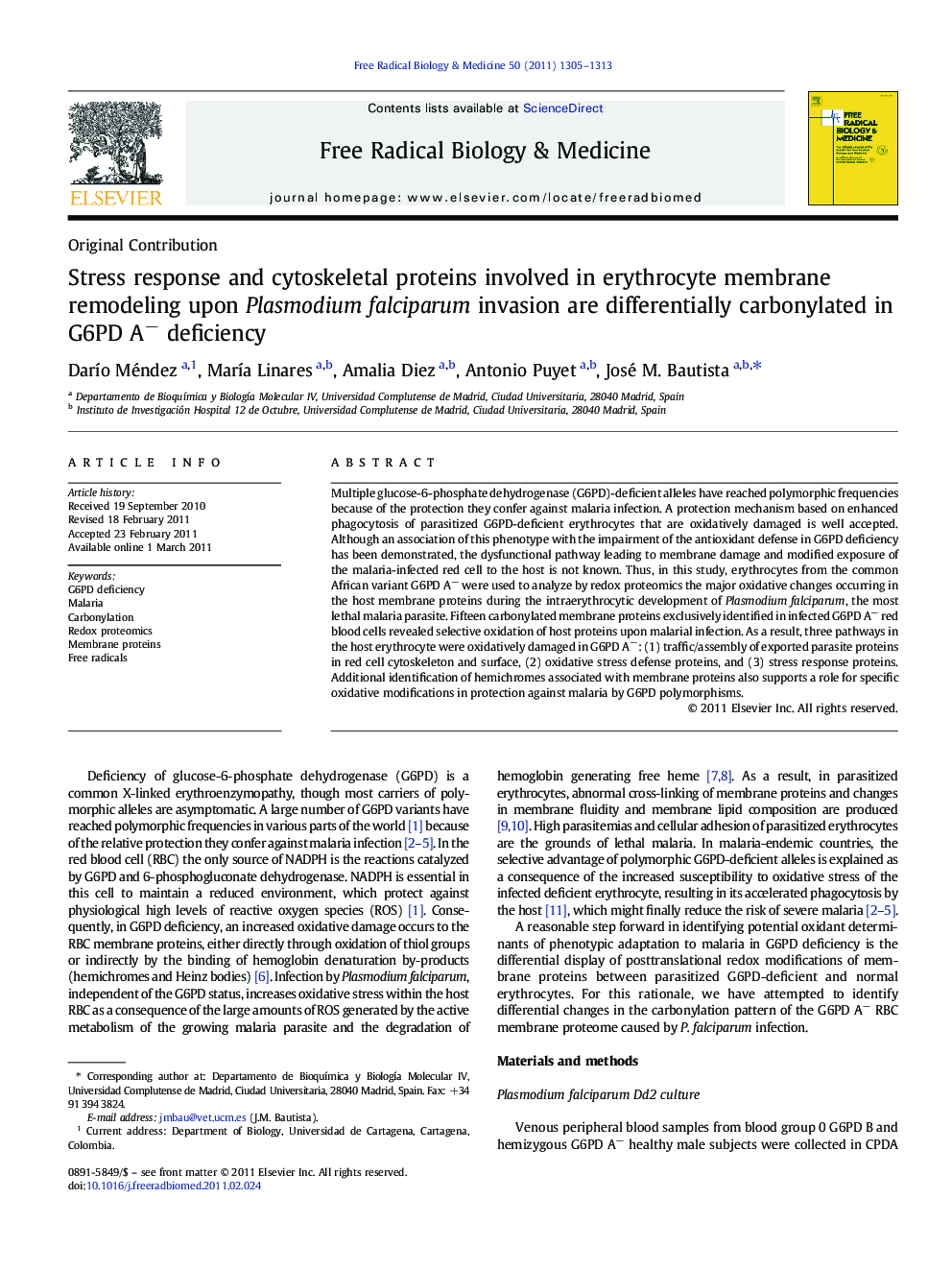| Article ID | Journal | Published Year | Pages | File Type |
|---|---|---|---|---|
| 10738390 | Free Radical Biology and Medicine | 2011 | 9 Pages |
Abstract
Multiple glucose-6-phosphate dehydrogenase (G6PD)-deficient alleles have reached polymorphic frequencies because of the protection they confer against malaria infection. A protection mechanism based on enhanced phagocytosis of parasitized G6PD-deficient erythrocytes that are oxidatively damaged is well accepted. Although an association of this phenotype with the impairment of the antioxidant defense in G6PD deficiency has been demonstrated, the dysfunctional pathway leading to membrane damage and modified exposure of the malaria-infected red cell to the host is not known. Thus, in this study, erythrocytes from the common African variant G6PD Aâ were used to analyze by redox proteomics the major oxidative changes occurring in the host membrane proteins during the intraerythrocytic development of Plasmodium falciparum, the most lethal malaria parasite. Fifteen carbonylated membrane proteins exclusively identified in infected G6PD Aâ red blood cells revealed selective oxidation of host proteins upon malarial infection. As a result, three pathways in the host erythrocyte were oxidatively damaged in G6PD Aâ: (1) traffic/assembly of exported parasite proteins in red cell cytoskeleton and surface, (2) oxidative stress defense proteins, and (3) stress response proteins. Additional identification of hemichromes associated with membrane proteins also supports a role for specific oxidative modifications in protection against malaria by G6PD polymorphisms.
Related Topics
Life Sciences
Biochemistry, Genetics and Molecular Biology
Ageing
Authors
DarÃo Méndez, MarÃa Linares, Amalia Diez, Antonio Puyet, José M. Bautista,
